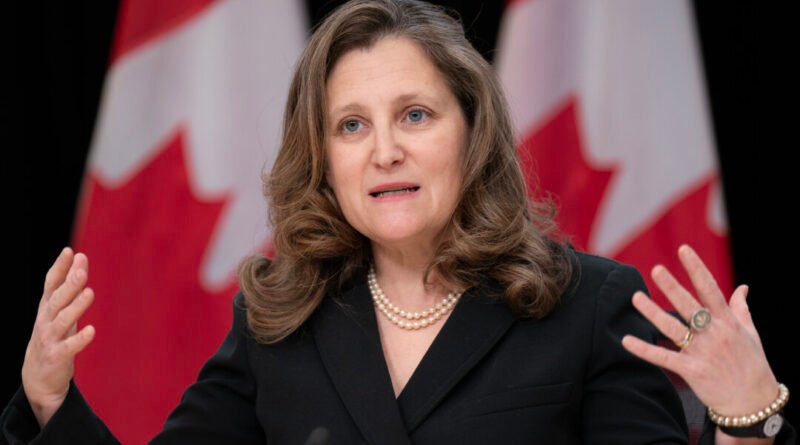Freeland Proposes Capital Gains Plan in Parliament
Deputy Prime Minister Chrystia Freeland has introduced a ways and means motion in the House of Commons to raise the capital gains tax on June 25, stating it is a more “fiscally responsible” approach than increasing government debt.
“Canada could fund these crucial investments by borrowing more money, but that would unfairly burden younger generations,” Ms. Freeland stated during a press conference on June 10. “Fiscal responsibility is important.”
A ways and means motion is the initial step needed before introducing tax change legislation, with a vote expected next week.
In the April 2024 budget, the government proposed taxing Canadian companies on 66.7% of their realized capital gains, up from the current 50%. Individuals would pay tax on 50% of the first $250,000 of capital gains in a year, and 66.7% of any gain beyond that under the new system.
The Liberals decided to separate this proposed change from the budget implementation legislation, planning to introduce it as a separate bill later on.
Ms. Freeland expressed concern that the current tax treatment of investment gains allows affluent Canadians who earn income through investments to pay a lower tax rate than those with salaries, like nurses or plumbers. “That’s not fair. That’s favoritism,” she emphasized.
Opposition to Tax Increase
The proposed capital gains tax increase has stirred controversy among business groups, with the Canadian Federation for Independent Business and the Canadian Chamber of Commerce expressing concerns in a May 9 letter that the change would “make Canada a less competitive and less innovative nation.”
Emphasizing the government’s commitment to Canada’s healthcare, Freeland highlighted over $200 billion in investments made, along with a 50% increase in student loan forgiveness for rural doctors and nurses, and the introduction of dental and pharmacare plans.
The expected revenue from the capital gains tax hike, approximately $12 billion, would provide “significant revenue” for provinces and territories, according to Freeland.
“I would suggest that provinces and territories use some of that revenue to increase the salaries of doctors if Canadians believe our doctors should be better paid,” she stated.
Some Conservative MPs have accused the Liberals of delaying the start date for the tax hike until June 25 to create a pre-election increase in tax revenue. They argue that Canadians may hurry to sell investments, properties, or businesses before the deadline.
Conservative MP Philip Lawrence voiced concerns at a House of Commons finance committee hearing on May 7 that the Liberals would require an extra $7 billion in revenue to fund their latest budget, resulting in them “creating a forced sale situation by announcing the legislation takes effect on June 25.”
Freeland has previously urged Poilievre to clarify his position on the tax change and mentioned on June 10 that Canadians should closely monitor all MPs’ votes on the matter.





